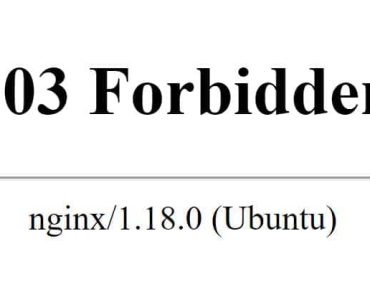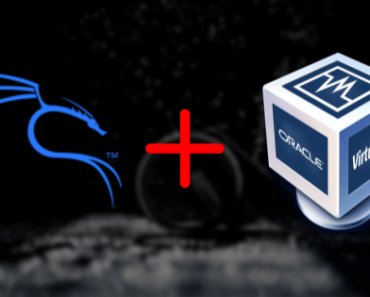XFS vs EXT4! This is a very common question when it comes to Linux filesystems and if you’re looking for the difference between XFS and EXT4, here is a quick summary:
1. XFS is optimized for large file transfers and parallel I/O operations, while ext4 is optimized for general-purpose use with a focus on security.
2. XFS supports larger file sizes and volumes, while ext4 supports advanced file and directory-level permissions.
3. XFS uses a more advanced journaling system and is better suited for environments that deal with a large number of small files.
4. XFS filesystem is better for multiple read/write threads, while ext4 is better for single read/write thread.
5. XFS is not as widely supported as ext4, and may not be compatible with all operating systems.
When it comes to storing and organizing data on a storage device, there are many different filesystems to choose from. Two popular file systems for Linux are XFS and ext4.
Each file system has its own unique strengths and weaknesses, and the choice of the file system will depend on the specific requirements of your use case. In this article, we will discuss the main differences between XFS and ext4.
XFS and ext4 are two different file systems used for storing and organizing files on a storage device like a hard drive or solid-state drive.
What is XFS Filesystem
XFS, a file system that was created by Silicon Graphics in 1993, is known for its exceptional scalability and speed. This is the default filesystem in RHEL 7 and above.
What is ext4 Filesystem
ext4, the fourth extended file system, is a Linux-based journaling file system that was created as the successor to ext3. It started as a set of backward-compatible additions to ext3, with many of these enhancements being developed by Cluster File Systems.
This is the default filesystem in RHEL 5 and 6.
The main differences between XFS and ext4
1. Performance: XFS is optimized for large file transfers and parallel I/O operations, making it a good choice for high-performance computing and data storage applications. On the other hand, ext4 is optimized for general-purpose use, but may not provide the same level of performance for large file transfers.
2. Maximum file size and volume size: XFS supports much larger file sizes and volumes than ext4. This means that XFS is a better choice for storing large files, such as videos or large databases.
XFS filesystem can support up to 500TB on Red Hat Linux 7 whereas EXT4 supports only 50TB in RHEL 7.
3. Journaling: Both XFS and ext4 use journaling to help prevent data loss in case of a crash or system failure. However, XFS uses a more advanced journaling system that is faster and more efficient.
4. File and directory-level permissions: ext4 supports advanced file and directory-level permissions, while XFS does not. This makes ext4 a better choice for environments where security is a concern.
5. Resizing: XFS supports online filesystem growing, but you cannot reduce the size, while, you can grow or reduce the size of an ext4 filesystem
6. Metadata handling: XFS is designed to handle metadata operations more efficiently than ext4. This means that XFS is better suited for environments that deal with a large number of small files, such as software development projects.
7. Backup and recovery: XFS includes built-in backup and recovery tools, making it easier to recover from data loss or system failures. ext4 does not have built-in backup and recovery tools, but you can use third-party tools to perform these tasks.
8. Compatibility: XFS is not as widely supported as ext4, and may not be compatible with all operating systems. ext4, on the other hand, is widely supported and compatible with many popular operating systems, including Linux, Windows, and macOS.
These are some of the main differences between XFS and ext4. In general, the choice of the filesystem will depend on the specific requirements of your use case, and you should choose the file system that best meets your needs in terms of performance, compatibility, and features.
In summary, Use the XFS filesystem if you have a large server with lots of resources and you will be dealing with big files and multiple threads. Whereas use ext4 for general purposes when resources and bandwidth are limited and the Linux server will mostly deal with a single read/write thread.
Conclusion
In conclusion, XFS and ext4 are both popular file systems for Linux with their own unique strengths and weaknesses. XFS is optimized for large file transfers and parallel I/O operations, while ext4 is optimized for general-purpose use with a focus on security. XFS supports larger file sizes and volumes, but ext4 supports advanced file and directory-level permissions.
Ultimately, the choice of the file system will depend on the specific requirements of your use case, and you should choose the file system that best meets your needs in terms of performance, compatibility, and features.
Infographic
(Click the infographic to enlarge.)
Share this Image On Your Site
Please include attribution to https://www.storagetutorials.com with this graphic.
<a href="https://www.storagetutorials.com/xfs-vs-ext4-filesystem/"><img style="width:100%;" src="https://www.storagetutorials.com/storage/2023/01/xfs-vs-ext4-infographic.png"></a><br>Infographic Created By: storagetutorials.com <a href="https://www.storagetutorials.com/xfs-vs-ext4-filesystem/">XFS vs EXT4</a>
or
<a href="https://www.storagetutorials.com/xfs-vs-ext4-filesystem/"><img src="https://www.storagetutorials.com/storage/2023/01/xfs-vs-ext4-infographic.png" width="100%" alt="XFS vs EXT4" style="max-width:800px;"></a><br>By <a href="https://www.storagetutorials.com/" target="_blank">Storagetutorials.com</a>




